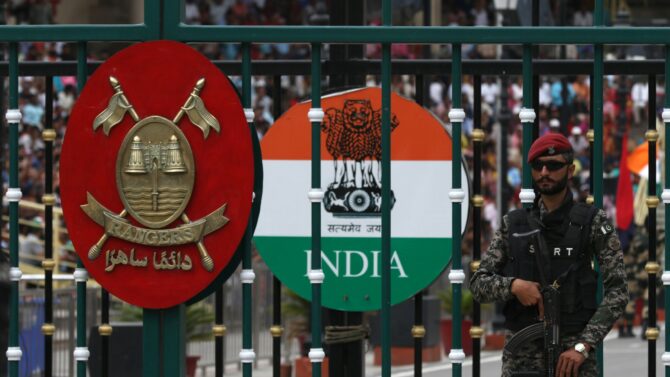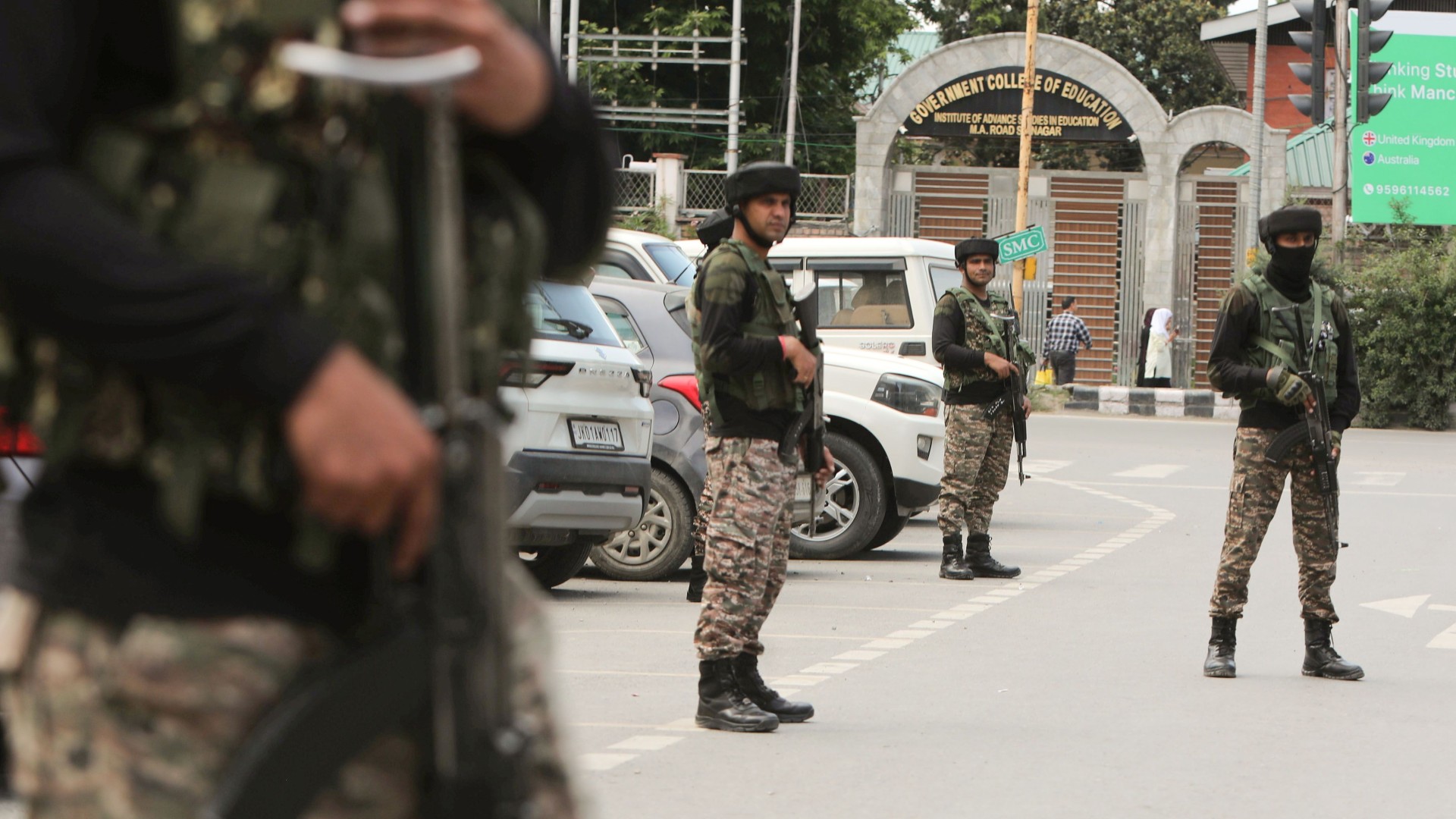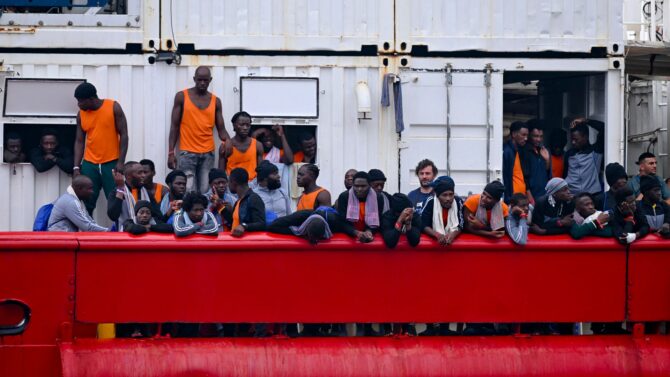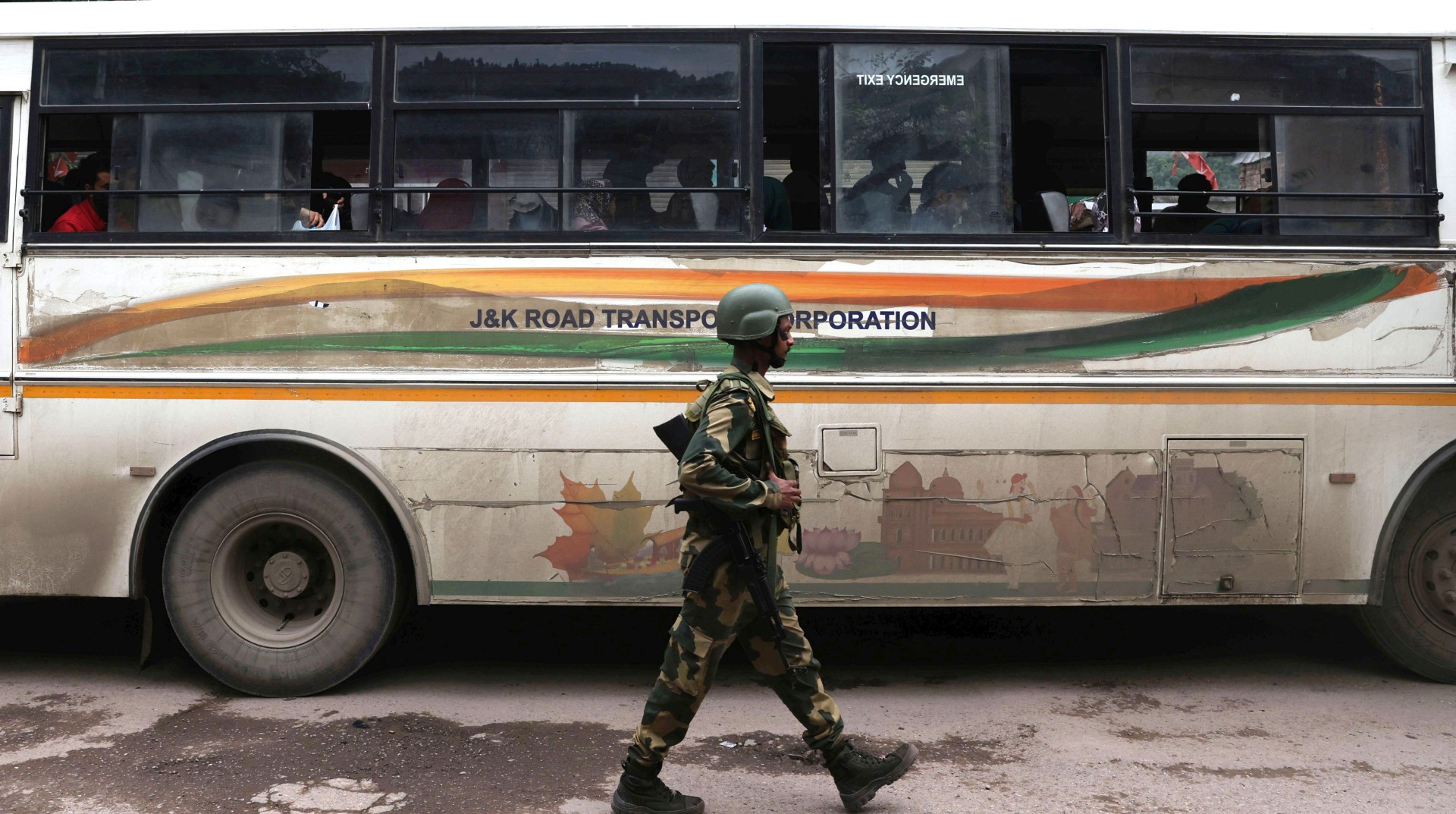An application to the Asylum Service of Greece sheds light on the current crisis in Kashmir.
In the last months of 2021, a 33-year-old Pakistani man showed up at a regional office of the Asylum Service of Greece. He claimed that he had been recruited by the Lashkar-e-Taiba in his home country and that when he tried to leave the organization, he was captured and tortured.
The Islamist group Lashkar-e-Taiba (“Army of the Pure”) has been in the spotlight in recent weeks as Pakistan and India teeter on the brink of a large-scale military conflict. The crisis was sparked by an April 22 armed attack on a tourist resort in Kashmir, a region in the Himalayan foothills that has been disputed for decades between Muslims and Hindus.
India has accused Lashkar-e-Taiba of being behind the attack, allegedly acting under the direction or at least with the acquiescence of Pakistani agencies. Pakistan denies the allegations, but the attack has sparked military clashes and many fear a further escalation of tensions between the two nuclear-armed neighboring countries.
India-Pakistan Strikes: 5 Essential Reads on Decades of Tension

The recent India-Pakistan conflict stems from border tensions, political rhetoric, militant attacks, and competing national interests in the Kashmir region.
The application of the Pakistani man examined by the Appeals Authority of the Asylum Service in Athens. The decision made by a senior administrative judge – an employee of the Asylum Service served as secretary – reveals unknown details about the current crisis on the Roof of the World. The 33-year-old Pakistani man described himself as a Sunni Muslim by religion and a Punjabi by ethnicity. He was a farmer in Pakistan and had crossed from Turkey to Greece, leaving behind his wife and two children.
As noted in the Appeals Authority’s decision report, he described that at some point an unknown man had offered him a job in Pakistan, claiming that he would accompany certain people on their travels. “I accepted and after ten days they gave me about 20,000 Pakistani rupees. They immediately asked me to follow them to a mountainous forest area “for training”,” he said.
“They gave me a pistol, put some targets among the trees and told me to aim the pistol at them. After the shooting, we returned to the house where we were staying and in the evening I heard them in another room making plans to kill a man. In an instant, my first suspicion [Editor’s note: was] that I had gotten involved with the underworld.”
He stated that he left the house that night and returned to his family, but a short time later the same men found him again. “They told me that once I joined Lashkar-e-Taiba, I could not leave. They kept me captive for about ten days, beating me with their fists, kicks and pistol butts, while pointing their guns at my head and threatening to execute me on the spot […] one of them amputated two fingers from my right hand.”

He describes, as quoted in the report, that he managed to escape. He fled to Turkey for five years, but was arrested and deported to Pakistan. The people of Lashkar-e-Taiba were quick to knock on his door again.
“Soon, as I knew that they had a network of partners across the country, I started making arrangements to leave,” he said during his examination. “Another reason I was afraid to go to the police was because my captors had threatened to turn me in and frame me for their own crimes.”
As noted in the Appeals Authority’s decision report, the applicant reiterated on several occasions that he was in danger of being persecuted and that he was seeking international protection; therefore, he was asked for further information on the situation in Pakistan. He spoke about the political situation and the activity of Islamist organizations in the country, noting also that Lashkar-e-Taiba was “sending people to Kashmir.” His claims were deemed credible and he was granted refugee status.
iMEdD tried to contact the asylum seeker, but he did not want to talk about his story.
Trapped in transit: Migration chokepoints in the Central Mediterranean

Thousands of people are stuck between Tunisia and Italy within a migration system designed to hold them back. How do current policies affect migrants, and what can regional actors change to promote the region’s sustainability?
Meanwhile, the Appeals Authority’s decision includes evidence from international reports that speak to the current crisis. According to these reports, Lashkar-e-Taiba was founded as the military wing of the Pakistani Islamist organization Markaz-ad-Dawa-wal-Irshad. In the early 1990s, the organization was supported by Pakistan’s intelligence services for the purpose of creating instability in India.
“Lashkar-e-Taiba views the struggle against Indian control of Kashmir as part of a global struggle against the oppression of Muslims and ultimately seeks to establish an Islamic caliphate in the Indian subcontinent,” the report says. The group has been blamed for a series of deadly attacks on Indian security forces and civilians, but Lashkar-e-Taiba denies any involvement.
In December 2001, gunmen attacked the Indian Parliament, killing seven people. This prompted the United States to include the group on the list of foreign terrorist organizations. The deadliest attack was the series of gun and bomb attacks on tourist shops in Mumbai in November 2008, which killed at least 170 people.
The official state of Pakistan has outlawed the organization, although, as noted in the decision, not all Pakistanis consider the organization to be terrorist, due to the social welfare and humanitarian assistance it provides to a significant part of the population. The decision of the Asylum Service notes that Lashkar-e-Taiba is still loyal to the Pakistani state. “It remains active, has latitude of action and the state appears to be tolerant,” it states.

